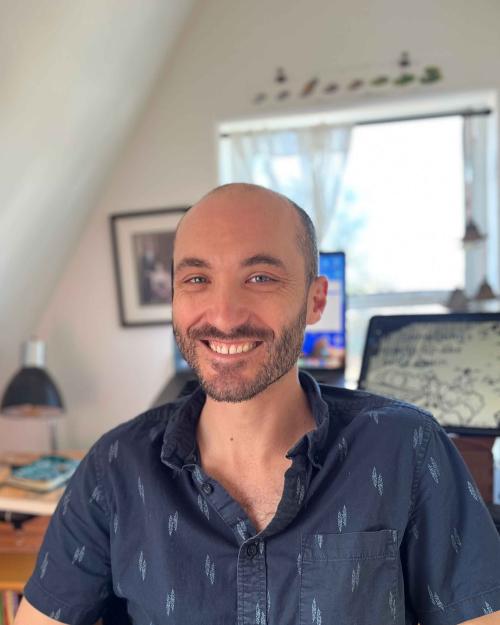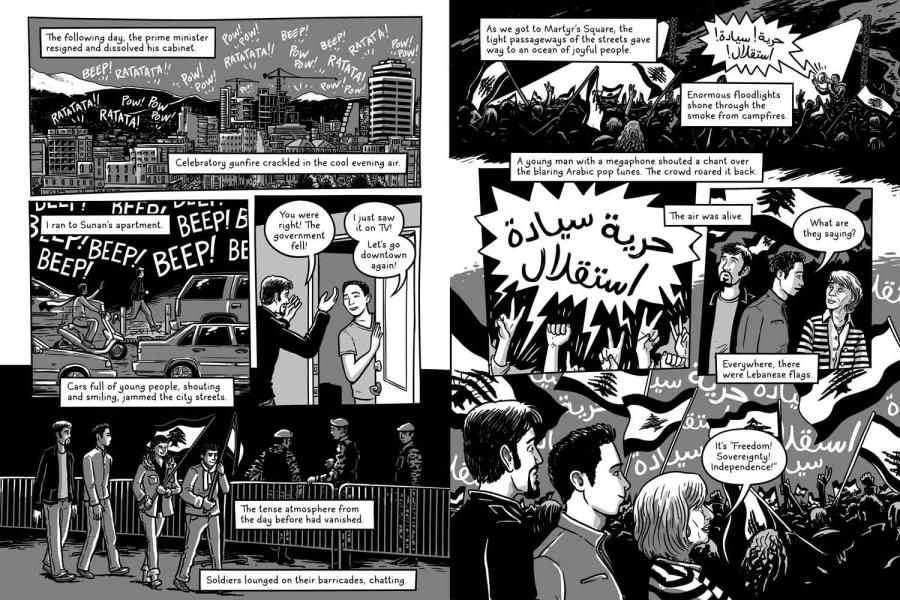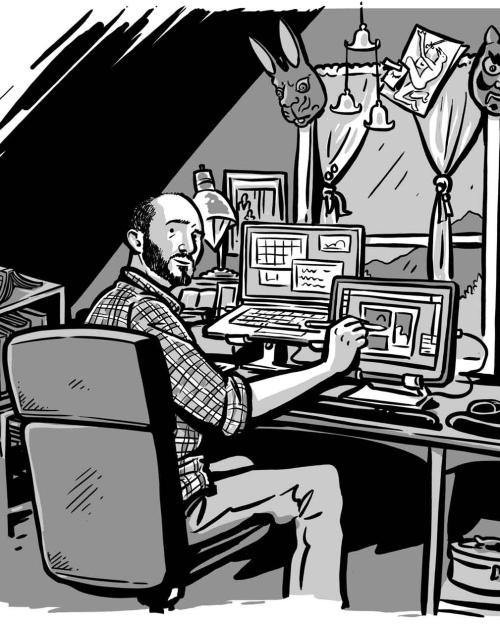During Andy Warner’s ’06 junior year study abroad in Lebanon, the country’s government collapsed after the assassination of former Prime Minister Rafik Hariri. There were street protests and flashes of political violence and bmbog, but Warner never thought about coming back home. Instead, he started drawing comics, lots of them.
“None of the international students were leaving. When you’re living in a place, those kind of incidents seem very localized,” he said. “And I learned that I’m good at using comics and writing to process real world events and synthesize information.”
Warner continues to tell non-fiction stories through comics today. He’s the New York Times best-selling author of "Brief Histories of Everyday Objects,” “This Land is My Land,” “Pests and Pets” and “Spring Rain,” a narrative about his time spent in Lebanon.
Warner’s books have been translated into Russian, Chinese, Korean, French and Spanish. He is a contributing editor at The Nib and teaches cartooning at Stanford University and The Animation Workshop in Denmark.
Along with his books, his work has been published by Slate, American Public Media, Popular Science, KQED, IDEO.org, The Center for Constitutional Rights, UNHCR, UNRWA, UNICEF, Google X and Buzzfeed.
Drawing has long been part of Warner’s life, as he remembers completing high school science reports in comic form and reading a lot of Larry Connick’s work. Once at Cornell, he focused on his majors in comparative literature and Near Eastern studies, but still managed to spend time drawing and reading comic artist Joe Sacco.
The trip to Lebanon kick-started his drawing, though, and when he returned to Cornell he started a comic magazine with friends at Cornell, then graduated and found an internship at The Believer Magazine in the Bay Area, learning graphic design skills there, landing a job land a job doing a magazine for The Commonwealth Club and establishing his own freelance business on the side.
The financial crisis wiped out many of his clients, so a few years after that, he decided to go to graduate school at the Center for Cartoon Studies in Vermont and his career grew from there.
Comics are a complicated art form, Warner said. “You’re thinking about the story, this narrative, but there’s also this problem of the page,” he said. “Unlike in prose, the immediate visual experience is what draws you into the page.”
His latest book “Pests and Pets” is part of a series he’s dubbed “Andy Warner’s Oddball Histories.” Upcoming in the series is a book about plants and another about materials, to follow his animal, vegetable, mineral theme. He’s promised one of his kids that the third book will end in outer space.
For his first book, “Brief Histories of Everyday Objects,” Warner said he sought out “the most boring things I could think of” and then researched the often oddball histories of these items.
Ideas for his work come from podcasts and reading.
“I have a folder of ideas filed away in my head,” he said.
Warner says his Cornell classes have proven useful as he plans out his projects.
"Comp lit taught me to absorb and then pull apart texts and ideas and rearrange them, while NES was great for giving me the tools of wading through history, comparative religions, politics and ideology,” he said. “Making comics was an easy way for me to show other people what was going on in my head and what I was thinking of, a way to say my peace.
“It’s OK for you if the way you say your peace is through the arts.”







